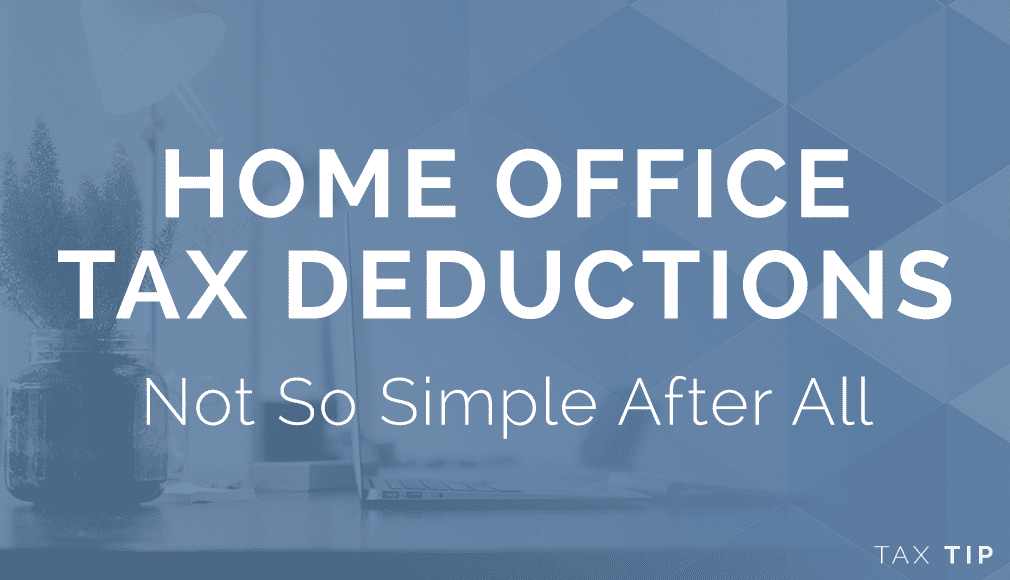

With today’s technological advances and greater prioritization on work-life balance, more and more workers are working from home. While some are self-employed, some utilize social media to build direct sales businesses, and others are remote employees of businesses, read on to find out if the home office deduction can have an impact on your personal return.
Find yourself working from home consistently? If so, you may be entitled to deduct home office expenses on your personal income tax return. Taxpayers are sometimes hesitant to use this deduction, but the IRS recently published a reminder about a simplified deduction method that eliminates most of the hassle.
But that’s only part of the story. In fact, you may be able to claim a bigger home office deduction if you do things the old-fashioned way.
To qualify for deductions, your home office typically must be used regularly and exclusively as your principal place of business or a place to meet clients, patients, or customers in the normal course of business. Alternatively, you may be able to deduct expenses of a separate structure, like a barn or detached garage, used for storage.
If you’re an employee, the home must office must be expressly used for the employer’s convenience. For this reason, self-employed individuals usually claim these deductions.
“When the IRS says the home office must be used exclusively, they mean exactly that,” Associate Partner Ren Cicalese III, CPA, MST emphasizes. “If you’re home office doubles as a kids play area, the deduction will be denied,”
”Keep in mind that it has to be a necessity,” continues David Evans, CPA. “If you maintain a regular office or place of business outside of the home, you will most likely not be able to have a home office deduction. If you are an employee and your employer does not require you to maintain a home office, you will not be entitled to the deduction.”
“The simplified deduction lets taxpayers take a deduction based purely on the square footage of the home office,” answers Ren. “Although easier than the traditional calculation, you generally get to deduct a smaller amount.”
Beginning in taxable year 2013, the IRS introduced the simplified method to try to lessen the burden for small business owners experiencing difficulty understanding the complex requirements of the standard home office deduction. However, don’t let the complexities scare you off. Consult with your CPA during a tax planning session to find out which method is most beneficial to your individual situation.
The IRS also reminds you that you can deduct your legitimate expenses, including a proportionate share of expenses for the entire home (e.g., insurance, repairs, mortgage insurance, and property taxes), plus a depreciation allowance, if you keep the proper records. However, they also advise that a simplified method, which first became available for 2013 returns, is more convenient. Under the simplified method, just multiply the total square feet of your home office by $5, up to a maximum deduction of $1,500.
Nevertheless, in many instances, your total deductible expenses would exceed $1,500 for the year, especially when you add in depreciation. For example, if you use 10% of your home as a business office and the total eligible home expenses are $25,000, you come out at least $1,000 ahead with the regular method ($2,500 – $1,500 maximum).
Read More About Reducing Tax Liability with the Home Office Deduction →
Ren, Dave, and Mike Engleman, CPA each advise about tax repercussions you face when it comes time to sell your house.
“The portion of your home used for business will not qualify for the gain exclusion on the sale of your principal residence,” cautions Mike.
“If you take depreciation as part of the deduction, you’ll have to recognize taxable income when you sell that home,” continues Ren.
“Additionally, if you used a depreciation deduction and you subsequently sell your home, you may be required to recapture some of the deduction previously taken and report a gain on the sale of business property,” further adds Dave.
It’s important to realize the home office deduction is one of the stickier areas of tax regulation. Before you decide which method is best for you, have a conversation with your accountant and business advisor to go through the details.
Contact us for guidance and application to your individual situation →
© MC 2017 | “Tax Tips” are published weekly to provide current tax information, tax-cutting suggestions, and tax reminders. The tax information contained in this site is of a general nature and should not be acted upon in your specific situation without further details and/or professional assistance.
Empowering business owners and individuals in South Jersey and Philadelphia to feel confident through proactive accounting and advisory solutions.